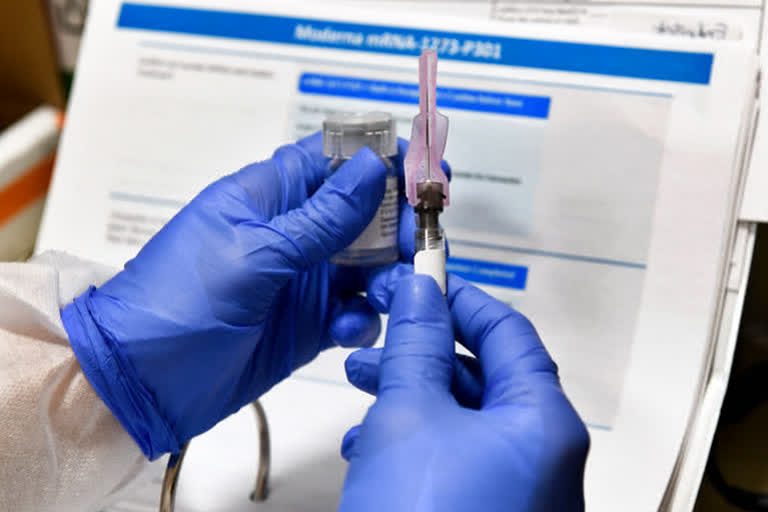Hyderabad: The Indian Council of Medical Research has approved a dry swab RNA an extraction-free testing method for the COVID-19 virus developed by CSIR-Centre for Cellular and Molecular Biology, CCMB said here on Friday.
Ribonucleic acid (RNA) is an important macromolecule that is present in all biological cells. In the conventional testing method, nasopharyngeal or oropharyngeal swab samples collected by sample collection centres are transported to testing centres, sometimes even hundreds of kilometres away.
The samples are generally placed in a liquid called Viral Transport Medium (VTM). To avoid leakage, they are packed heavily that adds on to sample processing times at both the sample collection and testing centres.
Despite this, there are leakages from samples, which render those batches untestable and unsafe in handling. CCMB researchers found that VTM can be totally avoided and dry swab technique also does not require RNA extraction and can be directly used for RT-PCR testing with sensitivity and specificity similar to the current gold standard.
READ: Foreign Secretary Harsh Shringla inaugurates Buddhist monastery in Nepal
This method has now received ICMR approval for use in settings where automated RNA extraction is not available, the city-based premier research institute said in a release.
Rakesh Mishra, Director, CCMB said RNA extraction, even with automation, takes four hours for roughly 500 samples. VTM and RNA extraction both add a significant burden on money and time required for mass testing for coronavirus.
"We believe the technique''s merit holds for all kinds of settings and has the potential of bringing down the costs and time of testing by 40-50 per cent.
It is a game-changing technology as with the existing infrastructure, the throughput of COVID-19 screening can be enhanced several fold with immediate effect while, at the same time, making the whole process safer," Mishra said.
PTI



